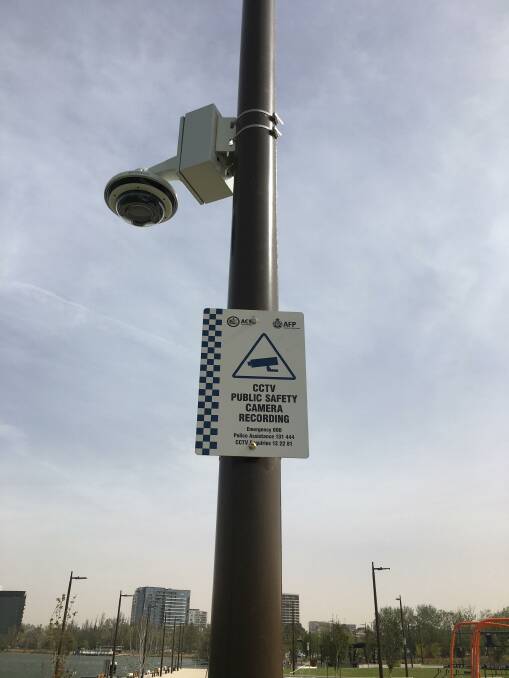
The ACT government will delay uploading drivers' licences to the federal government's planned biometric database until federal legislation passes in a move that has been applauded by privacy advocates.
Subscribe now for unlimited access.
or signup to continue reading
The proposed facial recognition system, managed by the Department of Home Affairs, would see real-time matching of faces to a system of verified facial data in order to combat identity theft as well as identify criminal suspects. It plans to use images from official identification issued in Australia, including passports, driver licences and immigration cards.
But the ACT government has said it won't upload its licence photos and associated data until a bill was first passed into legislation - something that might not be on the cards for some time due to COVID-19.
"The uploading of ACT data will not commence until Commonwealth and ACT legislation is passed, and participation agreements are signed," an ACT government spokesperson said.
"ACT residents will be informed of their drivers' licence images being uploaded to the system when legislative frameworks (Commonwealth and ACT) are finalised."
It's a move that South Australia, Tasmania and Victoria have already undertaken with Queensland expected to soon upload its batch of licence images and data to the already 7 million-strong database before the end of the year.

Justin Warren from digital rights advocacy group Electronic Frontiers Australia applauded the ACT for its insistence on waiting until a bill had passed first before rushing to any plans.
"The EFA is very disappointed in other states for not showing the same kind of backbone that the ACT has shown," Mr Warren said.
"ACT is doing the right thing because once they give this database to Home Affairs, all of the negotiating leverage is gone."
All of the country's states and territories first agreed to sign up to the National Drivers Licence Facial Recognition Solution (NDLFRS) at the 2017 Council of Australian Governments meeting, which would allow law enforcement agencies to share the licence photos and information across borders with ease.
While the system to enable this biometric sharing has since been built, it's not yet operational as the Identity-matching Services (IMS) Bill first needs to pass parliament.
The bill was first introduced back in 2018 but has since been in limbo after a senate committee said it needed redrafting to address privacy and transparency concerns.
It hasn't stopped four of the country's states from pushing on with uploading licences and Home Affairs told Senator Nick McKim at an Estimates hearing in March, the department expects the remaining states and territories will follow in the next 18 months.
Home Affairs said a state or territory would only be allowed to access and utilise the database once it had agreed to share its drivers' licence information.
Mr Warren said the issue with the government capturing the nation's biometric information and storing it in a single database came down to a simple thing: unlike passwords, you can't simply change your face.
"Is government going to use these to match us everywhere we go with CCTV cameras? They say they aren't today but what's to stop the next government doing that, once this ability is there to be used," Mr Warren said.
"We see this scope creep in every other piece of legislation that's been passed for 20 years. So, to simply just say, 'Oh no, don't worry about it. It won't happen'. Well, the track record is not good."
In late 2019, Australian Human Rights Commissioner Edward Santow called for a moratorium on facial recognition technology until more discussions and safeguards were considered.
Mr Santow said while new technologies could deliver societal benefits, they shouldn't come at the risk of human rights.
READ MORE:
While the pandemic has seen Australians more willing to hand over a little bit of their privacy to keep the community a bit safer, Mr Warren said it's an aspect Australians shouldn't give away lightly.
"You can't ever get privacy back," Mr Warren said.
"Once it's been violated, it's gone forever. All that you can have is some sort of compensation, or attempt to repair the damage, but it can't be unbroken.
"So, with Victoria, for example, it doesn't matter what happens with the bill [because] Victoria can't get those faces back."
Mr Warren said a key point of tension with the bill was trust in the government to do the right thing. Without any laws protecting Australians' right to privacy, Mr Warren said, that could be hard to achieve.
"If I decide that I can't trust my doctor any more, I get a new doctor," Mr Warren said.
"It's very difficult to get a new Department of Home Affairs."
The ACT government has said the bill's reintroduction to parliament was delayed while the federal government focused on the COVID-19 pandemic.


